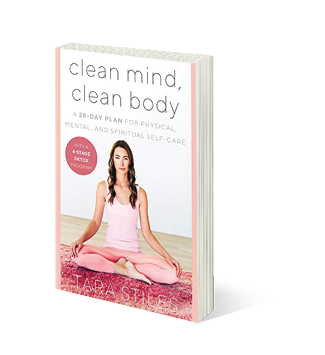
Clean Mind, Clean Body
A 28-Day Plan for Physical, Mental, and Spiritual Self-Care
By Tara Stiles
When Tara Stiles was wrapping up the edits on her new book, Clean Mind, Clean Body, the world was shutting down amid the pandemic outbreak. Stiles saw this as an opportunity to slow down.
“We must recognize that we are being given a once-in-a-lifetime opportunity to take the cue to slow down seriously,” Stiles writes. “If we let this time pass without heeding this call, we will have missed a massive moment for lasting transformation.”
In her book, Stiles offers a 28-day guide to slowing down and finding inner peace and balance.
“Imagine stepping off the wellness hamster wheel and finally feeling at peace in your body, while living with a deep knowledge of who you are, what you want, and how you want to serve in this world,” she writes. That’s her goal for those reading this book. (December; Dey Street Books; $25)
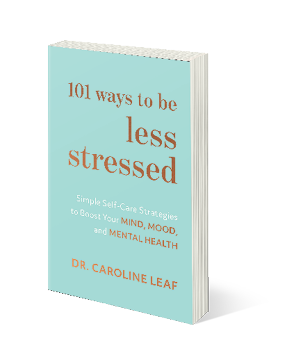
101 Ways to Be Less Stressed
Simple Self-Care Strategies to Boost Your Mind, Mood, and Mental Health
By Dr. Caroline Leaf
Dr. Caroline Leaf wants readers to understand the power of three things—their mind, their choices and their impact. To reflect on those things, she asks people to ask, answer and discuss. That three-step process can apply to anything in life, and when we do those things, Leaf says we expand our observations and begin to think more practically.
“The thing you need to always remember is that you have significant resources at your fingertips: your mind is incredibly powerful,” Leaf writes. “You can use your thoughts to improve your overall intellect, cognitive performance, and mental and physical well-being. Harnessing these natural resources will give you power over your present, depth and context to your past, and anticipation for the future.”
Leaf’s advice is founded in both science and experience. Consider reading a few of her 101 tips at a time and spend a week practicing those before moving onto others. (December; Baker Books; $15)
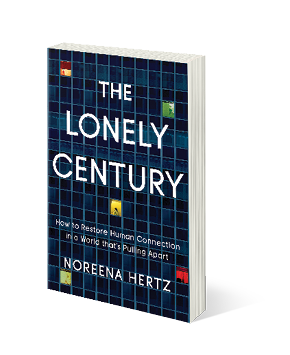
The Lonely Century
How to Restore Human Connection in a World That’s Pulling Apart
By Noreena Hertz
Whether you spent the pandemic shutdowns by yourself at home or with family, chances are you probably felt lonely at times. But Noreena Hertz writes that many of us were probably already feeling lonely before the pandemic hit. In her book, Hertz seeks to identify why we’ve become so lonely and what we need to do to reconnect, but she goes further.
“The purpose of this book isn’t solely to articulate the scale of the loneliness crisis in the twenty-first century, how we got here, and the ways that it will get worse if we do nothing to respond,” she writes. “It is also a call for action. To governments and business, for sure—loneliness has clear structural drivers that they must address. But also to each of us as individuals.”
Whether you feel lonely or not, Hertz’ book can help anyone understand more about how our society operates in ways. For instance, this book can help leaders understand how to build real camaraderie in their teams. (February; Currency; $28)
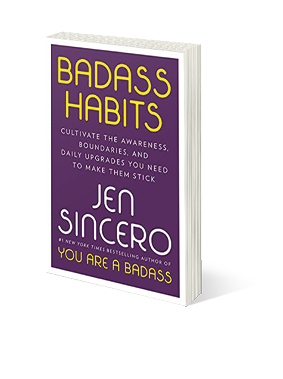
Badass Habits
Cultivate the Awareness, Boundaries, and Daily Upgrades You Need to Make Them Stick
By Jen Sincero
With her series of best-selling books, Jen Sincero has motivated people (You Are a Badass Every Day) and helped them get their money in order (You Are a Badass at Making Money). Now she wants to help people build better habits, and it’s something she’s been excited to dive into.
“In the original You Are a Badass, I mentioned this little truism: Our thoughts become our words, our words become our beliefs, our beliefs become our habits, and our habits become our realities,” Sincero writes. “Habits are the only piece of the equation I had yet to delve into deeply, and I couldn’t wait to get crackin’.”
In her book, Sincero breaks down why we’re often creatures of habits, how to identify bad habits and how to create new ones with a 21-day guide. Don’t rush through this part of the book. Instead take it one day at a time because it’s easy to fall back into old habits, she writes.
“Your old, bad habits have the home-field advantage,” Sincero cautions. “If you give them an inch they will take a mile, so a speedy recovery is epically important if you drop the ball.” (December; Penguin Life; $26)
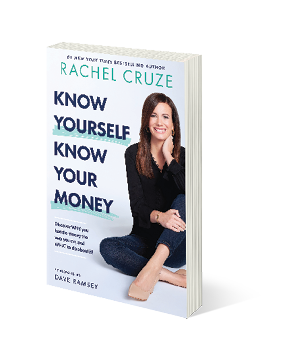
Know Yourself, Know Your Money
Discover WHY you handle money the way you do, and WHAT to do about it!
By Rachel Cruze
Rachel Cruze grew up learning about money and finances from the best. Her father, Dave Ramsey, has authored several books on the topic and millions listen to his radio show for guidance on how to manage their income and get out of debt.
In Know Yourself, Know Your Money, Cruze offers up financial advice of her own, and it gets personal. She seeks to get readers to learn what they believe about money and understand the whys about how they use it or don’t. Her book is divided up into two parts. In the first part, she wants readers to tap into their own money mindset—what they learned about money growing up, what fears they have about money, and how they respond to money mistakes. In Part 2, she examines what motivates those money habits and how to succeed financially for the long term. (January; Ramsey Press; $25)
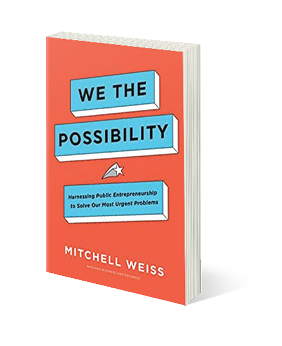
We the Possibility
Harnessing Public Entrepreneurship to Solve Our Most Urgent Problems
By Mitchell Weiss
At first glance, this may seem like a book about government and policy. Dive deeper and you’ll find out it’s really about effecting change, seeing problems as opportunities, and leading from within.
As the chief of staff for former Boston Mayor Thomas Menino, Mitchell Weiss had plenty of opportunities to create change through policy, but oftentimes found that bureaucracy got in the way. In We the Possibility, Weiss writes, for example, about how money from fundraisers after the Sandy Hook school shooting was late getting the victims’ families. So when the Boston Marathon bombing happened, Weiss wanted to take matters into his own hands. Through a massive team effort, he was able to lead a successful fundraiser, despite many telling him that he wouldn’t be able to raise money.
The lessons he’s learned can be applied to more than just creating a successful fundraiser, and he shares those teachings in his book. Too often we get caught up in our own ways, Weiss cautions, and that can lead to our own detriment. (January; Harvard Business Review Press; $30)
This article originally appeared in the January/February 2021 issue of SUCCESS magazine.
Photo by Shift Drive/Shutterstock.com





